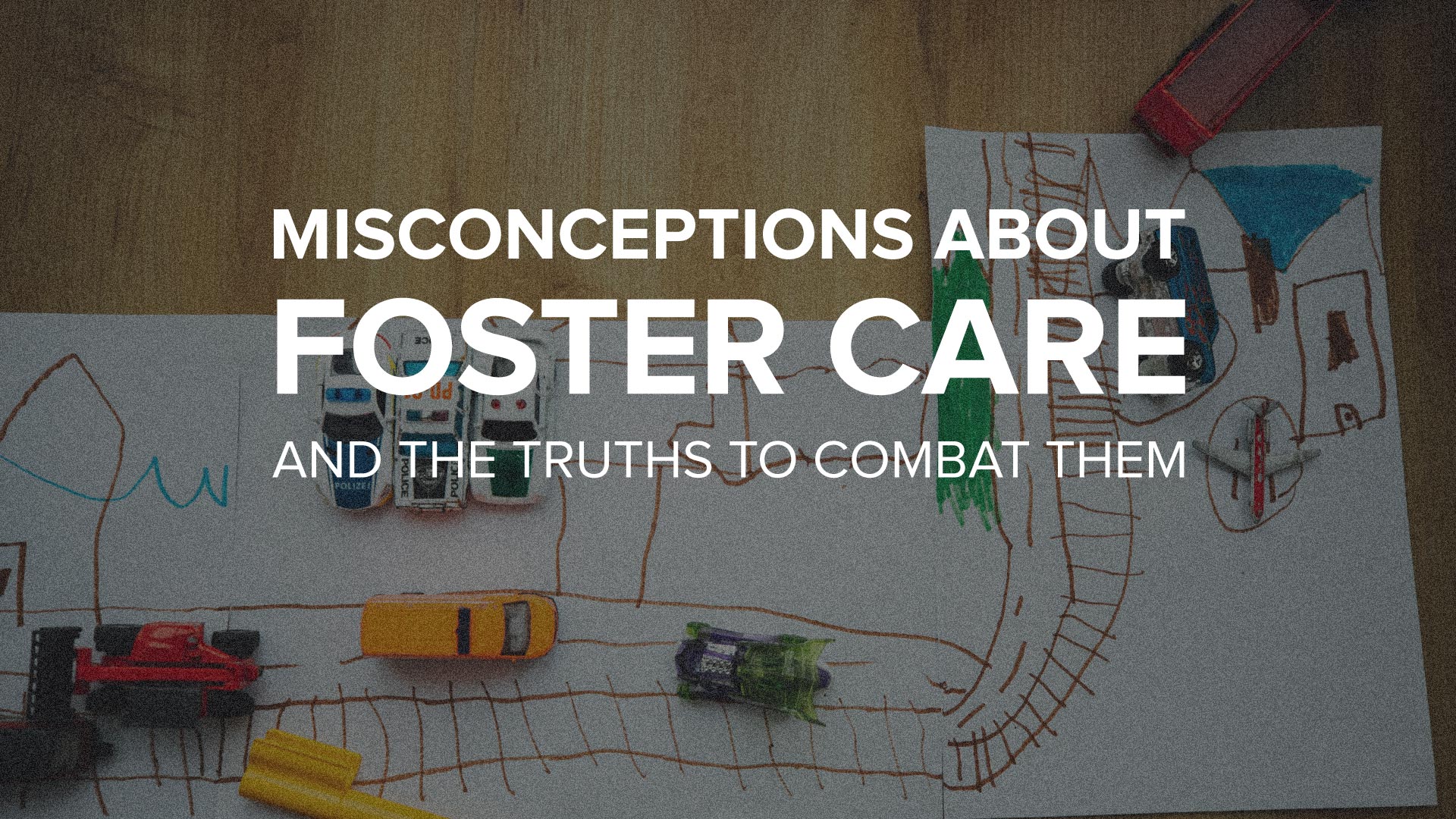Misconceptions about Foster Care
and the Truths to Combat Them
My husband and I have been licensed foster parents for 13 years, and in that time, we have had many conversations with others and answered many questions. In those conversations, we have often encountered statements or questions that, although well meaning, tend to be misconceived notions. These misconceptions can often lead to a negative view of foster care and often hold people back from even considering the possibility of foster care. I want to address four of the most common misconceptions that have been posed to us over the years and correct them with the truth in order that you, the reader, may approach the prospect of foster care in an informed and healthy way.
Misconception number four: The government will be too involved in my life, coming into my home and telling me what to do and how to live.
In reality, the government entity DHHS (Department of Health and Human Services) does not deal directly with foster parents when it comes to licensing their home. The Department contracts with an outside agency to do your training and licensing. In most of Iowa, this agency is Four Oaks.
Of course, you will have people from this agency enter your home and make sure that your home is adequate and safe for any potential children that will enter. And after you are licensed, the agency will check in with you from time to time depending on whether children are placed with you or not. But follow up visits are for the purpose of supporting you as a foster family to meet any needs that you may have.
DHHS deals more directly with the children who are removed and their biological parents. They will visit from time to time, and their purpose is to check in to see how the kiddos are doing in your home. DHHS only visits when you have a child placed in your home. Visits are scheduled , so you will not be blindsided with surprise visits. In our experience, other than reasonable rules to make the home a little safer, the level of intrusiveness has been minimal.
Misconception number three: I don’t have enough time, space or resources to be a foster parent.
What it actually takes to be licensed to foster is minimal. A bedroom with 40 square feet of space, a bed, and dresser. You don’t need to have a bunch of money or special skills. What you need is a heart for people and willingness to step out in faith to care for vulnerable children.
Misconception number two: I am afraid bringing a foster child into my home will negatively affect my children.
Our kids grew up with many foster children as little brothers and sisters to love on and play with. The choice to foster while our kids were growing up gave them an opportunity at a young age in our own home to be the hands and feet of Jesus to people from places they would never have otherwise encountered. Were there some bumps in the road? Of course. But with the bumps came experience that has formed in our biological children not only a heart for foster care, but also a consideration for lost and hurting people in general.
They would tell you that their experience with foster care has played an integral part in allowing them to become young adults with a focus on helping others and a desire to serve in ministry both locally and internationally. Bringing a stranger into your home can be scary, but you always have the opportunity to take the information presented to you and choose to say yes before a child is ever placed with you.
Misconception number one: I could never take a child into my home because it would hurt too much to give them back.
Let’s break this down for a moment.
Think about that first word, “I”. Foster care is an opportunity to serve others. When serving others, our first thought should not be for ourselves or what we will gain or lose.
Why are you saying, “Could never”? When you speak that way, you are putting limits on how God can use you.
“It would hurt too much to give them back”. Caring for children in foster care is often a temporary situation. The children you welcome into your home are not yours to give back. They are yours to love and care for and protect for whatever time God allows them to be there.
Taking a child into your home is a big deal, and it can be scary. I will tell you from experience that it is difficult at times when they return home and it doesn’t seem right. But other times, there can be rejoicing. Let’s think about foster care from the perspective of the Gospel and how Jesus lived as an example for us: serving others with no expectation of return or gain and sacrificing comfort and convenience, knowing there will be pain and suffering but believing that in the end, it will be worth it all because we have followed the call that God has placed in us. Ultimately, foster care means choosing to love people like Jesus did in order that they may have an opportunity to hear and see the gospel lived out.
I hope this article has helped to answer some of your questions. Perhaps it has brought up more questions. If your interest is piqued and you would like to talk more about foster care, feel free to find us (Adam or Jamie Schumacher), and we would love to talk to you more.
Next Up: Why believers should consider foster care.

